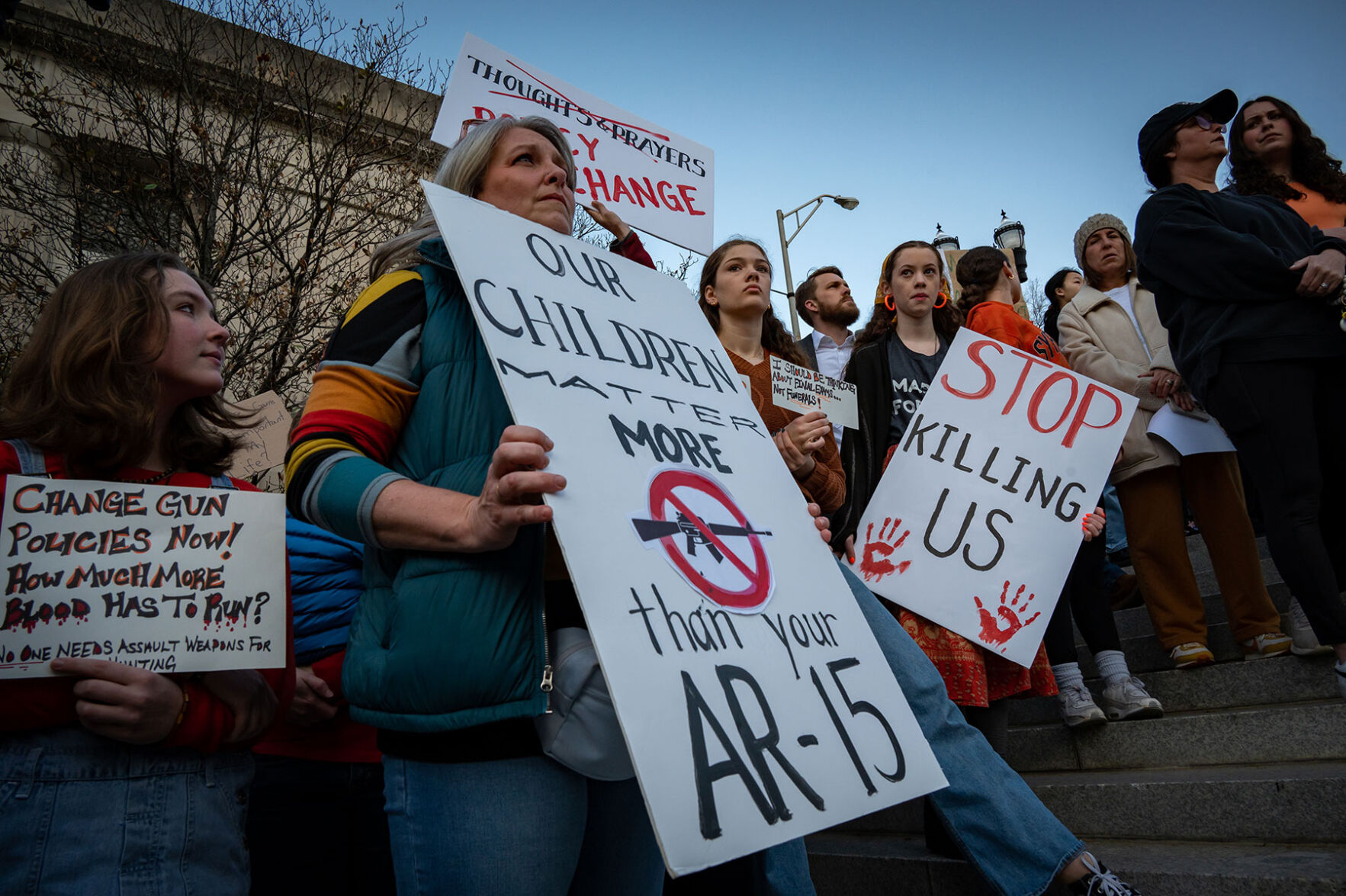In recent months, Metro Nashville Public Schools has made numerous changes to safety measures in an attempt to prevent violence in schools. But as these modifications are implemented, some students continue to have concerns about their safety.
It’s impossible to have a discussion around school safety in Nashville without acknowledging the area’s recent tragic history. In 2023, three students and three faculty members were killed in a shooting at the Covenant School, a private Christian school in Green Hills. On Jan. 22 of this year, 16-year-old Josselin Corea Escalante was killed in a shooting at Antioch High School. (MNPS approved a $300,000 settlement for Escalante’s family at a school board meeting earlier this month.)
School board OKs $300K agreement following July lawsuit claiming MNPS failed to protect students from harm
Both incidents sparked major protests at the Tennessee State Capitol pushing for gun violence prevention, though few statewide provisions related to the matter have been passed since. And due to resistance from Tennessee’s Republican supermajority, it’s unlikely that any major gun reform legislation will be approved anytime soon.
Meanwhile, MNPS has taken steps to enhance safety and security in local schools. In February, MNPS approved a $1.25 million annual contract for Evolv, an AI-powered weapons detection system, to be implemented in all local high schools. This was followed by a $1.2 million pilot expansion to install Evolv in middle schools, which was approved in September. This comes despite the fact that Omnilert, the AI-operated weapons detection system used at Antioch High School on the day of the January shooting, failed to detect the gun used.
MNPS has maintained that protocols like weapons detection systems are a part of a “layered approach” to school safety, citing other security technology, staff training and community partnerships as a part of a larger methodology toward ensuring safety in schools. School resource officers, security vestibules and shatter-resistant film are among other steps being taken by MNPS, along with advocacy and peace centers that focus on de-escalation and restorative practices.
Another safety feature currently being installed in MNPS schools is the Audio Enhancement system, which is designed to project a teacher’s voice throughout the classroom but also allows the teacher to alert the school administration of any threats or danger. MNPS spokesperson Sean Braisted says all middle and high schools currently have this system, as well as many elementary schools. Braisted says MNPS’ goal is to implement the system in all schools by the end of this school year.
This technology is similar to that of silent panic alarms used by teachers during the 2024 Apalachee High School shooting in Georgia. The alarms were credited with helping first responders arrive at the scene quickly, and state lawmakers are currently pushing for the rollout of these alarms in all Tennessee schools.
But despite these measures and protocols being carried out, some MNPS students feel there’s a lack of student input on what is being done about school safety. One local nonprofit, the Southern Movement Committee, pushes for youth voices in community conversations and Metro government decisions — including their recent efforts to create Metro’s Office of Youth Safety.
Gabrielle Lucas, a senior at Hume-Fogg Academic High School, is involved with the Southern Movement Committee. She tells the Scene that while the recent implementation of Evolv does increase her sense of safety at school, she worries that MNPS’ response is sometimes “reactionary” rather than addressing the root issues that may cause students to turn toward violence.
“I think a big part of it is they’re not talking to the ones that they’re trying to protect,” Lucas says.
Teen threatened student with box cutter in months prior to shooting
“It kind of sends the message to me as a student that they believe Evolv is kind of all that it takes, which I don’t think is true,” she adds. Lucas says she’d like to see Metro schools put more emphasis on mental health programming and other initiatives to address students’ situations outside of school that might lead them to turn to violence.
Kaitlyn Saffell, a sophomore at John Overton High School, is also involved with the Southern Movement Committee and echoes Lucas’ concerns. She says it takes larger discussions around community support to create safer schools.
“We haven’t fostered environments where communities can thrive and actually depend upon each other,” Saffell says. “It’s kind of an individualism situation. We’re all [every] man for himself.”
While both students want Nashville’s youth to have a voice when it comes to local policymaking, Saffell says the constant conversations can take a toll on students’ mental health.
“I’ve had teachers tell me they would lay down their life for us,” she says. “I know it’s a whirlwind of emotions, and it can be very startling. It’s reassuring, but it also holds guilt because I don’t think we should have to worry about safety when you’re in an environment to learn. We’re all either minors or young adults, and that’s not our purpose of coming to school. And it can be very jarring.”







